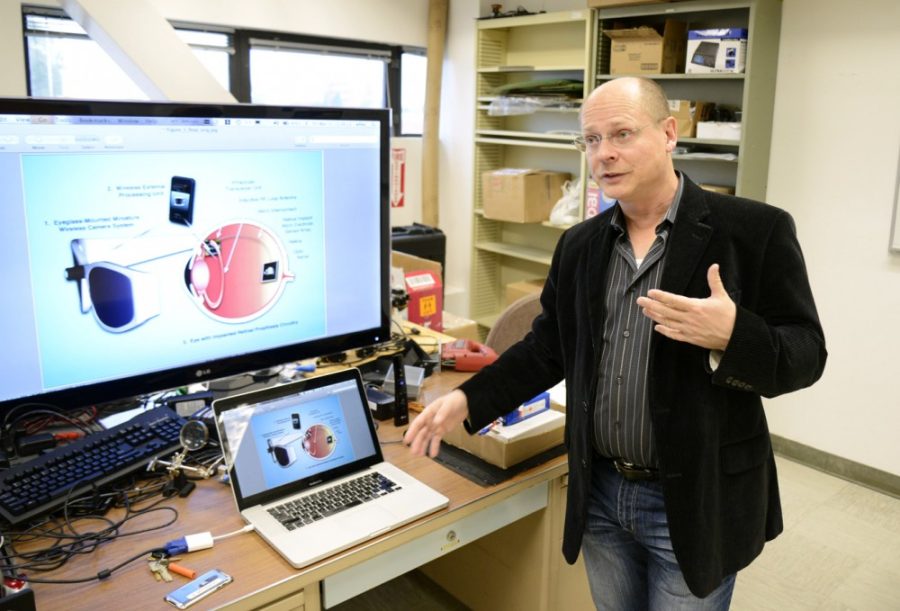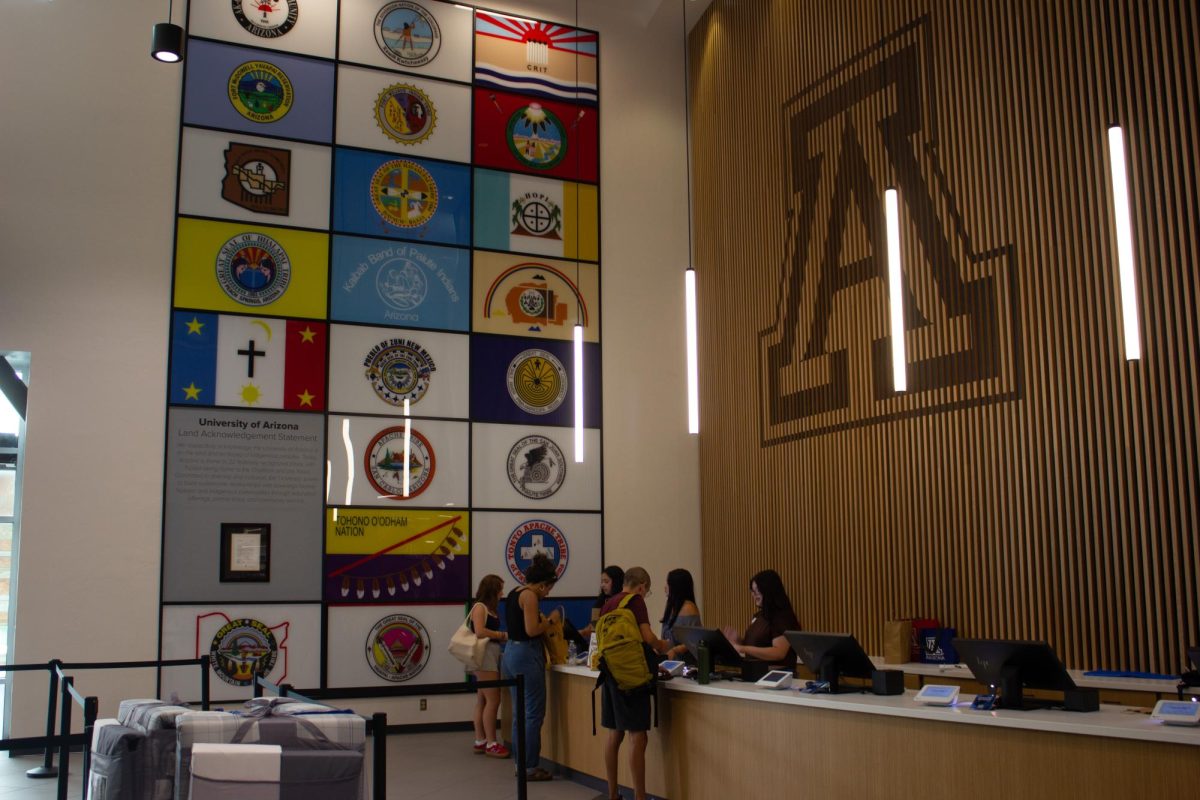Filters aren’t just for Instagram selfies anymore.
Wolfgang Fink, associate professor of electrical and computer engineering, is working on research in developing retinal implants that includes filtering images for the visually impaired. Fink said the filter options, which include contrast and brightness enhancement, could be used to artificially enhance what a visually impaired patient sees in real time.
“We can now customize or optimize what enters the patient’s implant through image processing,” Fink said. “We use the filters to enhance their quality of life.”
The filters sharpen the image received by the retinal implants, making it easier for patients to identify objects around them. Currently, these filters have to be operated by a person accompanying the visually impaired patient. Fink said the ultimate goal of the research is to make this filter program voice activated, so patients can operate it without help.
“Ideally, you would have a very intelligent program, which would sort of sense whether you’re outside or inside,” Fink said. “But, obviously, it would have to be somewhat voice controlled.”
Fink’s research also aims to improve the quality of retinal implants by using fewer pixels. If the chip inside the eye only has a few electrodes to stimulate the eye, Fink said, the image it receives should only have a few pixels as well.
Current retinal implants tend to work only in dark spaces, with too much brightness overloading the electrodes in the implant and blocking out any dark objects, Fink said. His research started as a way to solve that problem.
The processing unit created by this research will be able to be used with current implants, Fink said.
“Even with current implants … we can get them to approximate the resolution of the chip,” Fink said. “That would be the high end goal: to get that established.”
Joseph Miller, head of the Ophthalmology and Vision Sciences Department, said the research Fink is doing creates an important partnership between computer science and ophthalmology.
Miller added that Fink’s research would teach students at the university new ways of thinking about problems.
“Having someone that is able to think at a simple level for very complex problems is something we’re always trying to teach our students,” Miller said. “Wolfgang is a prime example of trying to extract simplicity from something that is very complex.”
Fink also does research in autonomous space exploration and said he uses some of the same tools for both sets of research. He now uses the rovers he built for space as surrogates for a blind patient in testing his implant systems.
“The technologies and techniques we use are pretty much the same for the vision field as for the robotics field,” Fink said. “Whether you use it for a rover on Mars or for an implant carrier, it’s the same. … So, that’s how these large areas which are seemingly disjunct fit together.”
– Follow Jazmine Foster-Hall @Jazz_Foster









